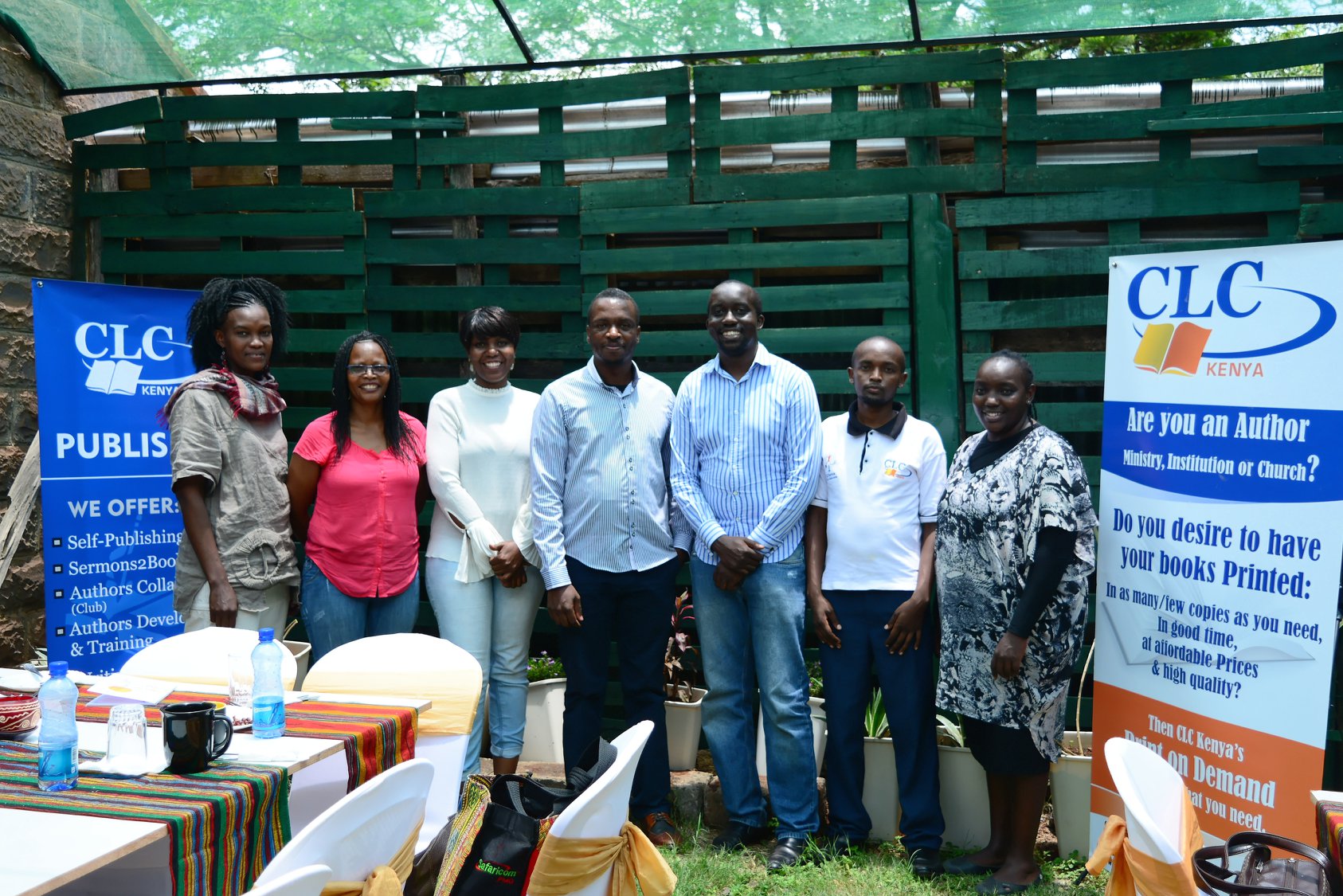Why are we writing? There are so many available writing classes for potential writers. The need to belong to a writing group ranges from one person to another. However, as Christian writers, our core should not be what or to whom we are writing. The foundational principle is that we are writing as a form of worship to God and service to the men and women that God has called us to.
We have to rely on the inspiration of the Holy Spirit to ensure that our message is based on what He wants our readers to hear according to His will. (Read more from the blog post: Can we achieve effective Christian authorship?)
Our writing should not be for monetary gain. In as much as we will sell our books and make money out of it (some more than others), this should not be our motivation.
STAGES IN WRITING PROCESS:
1. Pre-writing
2. Drafting (actual writing)
3. Revising (editing)
PRE-WRITING
The Bible says that before going to war or starting the construction of a house, we must count the cost. Prior planning provides you with a better probability to succeed. As writers, we have to plan and prepare our writing in order to ensure we accomplish what’s required by the dates we have set.
Manuscript completion date: Friday 17th April, 2020.
Graduation to publishing: Saturday 25th April, 2020 (during the iGen Family Reading Picnic Day in Nairobi).
To get us started, we need to think about several metrics. We will use a real example to help us nail it!
CASE STUDY: Muthoni Mercy’s book – Back on my Feet
1. The subject of the book/content. The subject matter for my book is “help for single moms and dads”. The subject is not necessarily the title of the book. The subject matter is what you will be discussing in your book. It is the overall theme of your message.
2. The purpose of the book’s message: This is the ‘why’ for the book in my heart and mind. The purpose of my book is to give helpful information and encouragement to men and women going through single parenthood due to various reasons including, fornication, adultery, divorce, death of a spouse, and rape. This purpose will keep me on check while drafting the pages of the book.
3. Target audience (reader): Who are we writing the book for/to? This will help shape our tone, voice, and levels of language difficulty. For my book, the tone is that of sympathy, encouragement, and up-lifting. Most of the single dads and moms are already at a ‘discouraged’ position, my tone cannot add to that discouragement.
This applies to all audience (reader) categories – books meant for children should be written in a simple way; for women in a loving and emotions-provocative way; for men in a masculine way; for teenagers in an expressive way; for businessmen and leaders in a serious and corporate way; and so forth.
Deciding the target audience (reader) at the start enables us to have less back and forth exchanges with the editors later during the publishing process.
4. Set a timetable for your writing. Human beings are creatures of habit. It may not be as easy when you are starting, however, when we get used to the routine, our bodies, minds, and spirits will cooperate every time (well, almost every time).
So what’s the best time to write? The best time is the time we decide to set aside. However, once we make that decision, we must stick to the routine every single day.
So is it better to write every day for a few minutes or have one or two full days in the week? Having a few minutes everyday helps instill the discipline without breaking it. But as earlier indicated, the best routine is what we (YOU) decide. The secret is in keeping up the discipline.
5. Do an outline/bigger picture/skeleton of your book. This will form our map towards the writing journey. It’s important to note that the direction may change midway, but we must have something at the beginning. We are writing under the inspiration of the Holy Spirit, if He chooses to lead us in a different direction, then we will just obey.
6. Do proper research at the beginning. This will include reading through other authors’ books on the subject matter; researching from the internet; and using any other relevant materials.
*We should ensure we write down the references as we do our research to save ourselves from looking for the references later during the publishing process. We should cut and paste the references on the last page of our writing pad/book/word processor etc. We should indicate book titles and the authors.
*We should avoid plagiarism – using other people’s content without credits to them is a crime punishable by law (and most times, ends up in expensive suits). If we did not say it, we should quote it and build on it. It also demonstrates our faithfulness as Christians.
*If we are interviewing real people, we should ensure the interview notes are well done either in video, audio or written formats. We should take as many notes as possible, and make sure we let the people know how we will be using their feedback to avoid future disagreements – we can use simple forms for our interviewees to fill allowing us to use their feedback in our book projects.
Assignments
ASSIGNMENT: WEEK 1 (Due on Monday 27th January 2020)
1. Answer the question, “Why are you writing?” and send it via WhatsApp 0733817962 together with a (good resolution) passport photo.
2. Define who is your target audience (reader) for your book.
3. Set up a writing timetable to help you with the discipline of consistent writing.
4. Do the outline/framework/skeleton of your entire book as you see it now. If you can, also have a working title.
ASSIGNMENT: WEEK 2 (Due on Sunday 2nd February 2020)
1. Do the introduction to your book. It is the beginning section which states the purpose and goals of your book. Summarize the outline of the book. Start out with a hook to pull your readers in from the very first paragraph. Try using your story, a funny story, a joke, or just use an interesting fact. Then talk about your reasons for writing the book and what you expect the book to be used for.
2. Do your author profile/bio/biography. This is where you establish yourself as the kind of person who ought to be read by your target market. It’s where you forge a connection with your potential readers and get them to trust you, believe in you, and want to read what you have to say.
The assignments should be submitted via Google Docs (with permission to edit) to authors@cblafrica.com and you will receive further guidance.
“The next meeting is on: Monday 3rd February 2020 at 4 pm Nairobi Time.“
Subscribe to join me, let's journey together...



